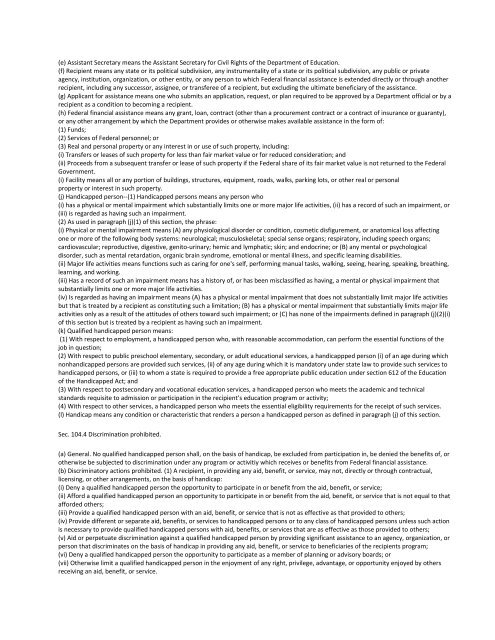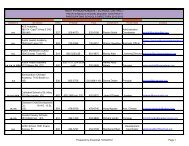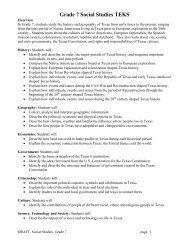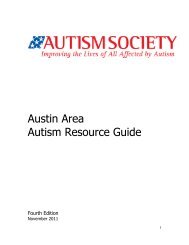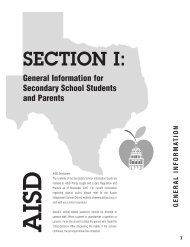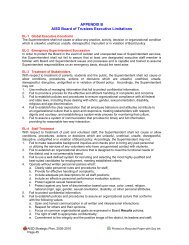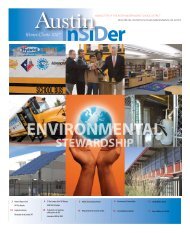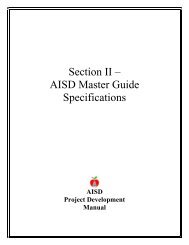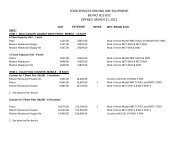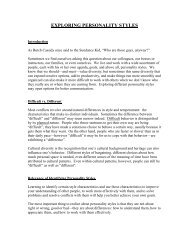(e) Assistant Secretary means the Assistant Secretary for Civil Rights of the Department of Education.(f) Recipient means any state or its political subdivision, any instrumentality of a state or its political subdivision, any public or privateagency, institution, organization, or other entity, or any person to which Federal financial assistance is extended directly or through anotherrecipient, including any successor, assignee, or transferee of a recipient, but excluding the ultimate beneficiary of the assistance.(g) Applicant for assistance means one who submits an application, request, or plan required to be approved by a Department official or by arecipient as a condition to becoming a recipient.(h) Federal financial assistance means any grant, loan, contract (other than a procurement contract or a contract of insurance or guaranty),or any other arrangement by which the Department provides or otherwise makes available assistance in the form of:(1) Funds;(2) Services of Federal personnel; or(3) Real and personal property or any interest in or use of such property, including:(i) Transfers or leases of such property for less than fair market value or for reduced consideration; and(ii) Proceeds from a subsequent transfer or lease of such property if the Federal share of its fair market value is not returned to the FederalGovernment.(i) Facility means all or any portion of buildings, structures, equipment, roads, walks, parking lots, or other real or personalproperty or interest in such property.(j) Handicapped person--(1) Handicapped persons means any person who(i) has a physical or mental impairment which substantially limits one or more major life activities, (ii) has a record of such an impairment, or(iii) is regarded as having such an impairment.(2) As used in paragraph (j)(1) of this section, the phrase:(i) Physical or mental impairment means (A) any physiological disorder or condition, cosmetic disfigurement, or anatomical loss affectingone or more of the following body systems: neurological; musculoskeletal; special sense organs; respiratory, including speech organs;cardiovascular; reproductive, digestive, genito-urinary; hemic and lymphatic; skin; and endocrine; or (B) any mental or psychologicaldisorder, such as mental retardation, organic brain syndrome, emotional or mental illness, and specific learning disabilities.(ii) Major life activities means functions such as caring for one's self, performing manual tasks, walking, seeing, hearing, speaking, breathing,learning, and working.(iii) Has a record of such an impairment means has a history of, or has been misclassified as having, a mental or physical impairment thatsubstantially limits one or more major life activities.(iv) Is regarded as having an impairment means (A) has a physical or mental impairment that does not substantially limit major life activitiesbut that is treated by a recipient as constituting such a limitation; (B) has a physical or mental impairment that substantially limits major lifeactivities only as a result of the attitudes of others toward such impairment; or (C) has none of the impairments defined in paragraph (j)(2)(i)of this section but is treated by a recipient as having such an impairment.(k) Qualified handicapped person means:(1) With respect to employment, a handicapped person who, with reasonable accommodation, can perform the essential functions of thejob in question;(2) With respect to public preschool elementary, secondary, or adult educational services, a handicappped person (i) of an age during whichnonhandicapped persons are provided such services, (ii) of any age during which it is mandatory under state law to provide such services tohandicapped persons, or (iii) to whom a state is required to provide a free appropriate public education under section 612 of the Educationof the Handicapped Act; and(3) With respect to postsecondary and vocational education services, a handicapped person who meets the academic and technicalstandards requisite to admission or participation in the recipient's education program or activity;(4) With respect to other services, a handicapped person who meets the essential eligibility requirements for the receipt of such services.(l) Handicap means any condition or characteristic that renders a person a handicapped person as defined in paragraph (j) of this section.Sec. 104.4 Discrimination prohibited.(a) General. No qualified handicapped person shall, on the basis of handicap, be excluded from participation in, be denied the benefits of, orotherwise be subjected to discrimination under any program or activitiy which receives or benefits from Federal financial assistance.(b) Discriminatory actions prohibited. (1) A recipient, in providing any aid, benefit, or service, may not, directly or through contractual,licensing, or other arrangements, on the basis of handicap:(i) Deny a qualified handicapped person the opportunity to participate in or benefit from the aid, benefit, or service;(ii) Afford a qualified handicapped person an opportunity to participate in or benefit from the aid, benefit, or service that is not equal to thatafforded others;(iii) Provide a qualified handicapped person with an aid, benefit, or service that is not as effective as that provided to others;(iv) Provide different or separate aid, benefits, or services to handicapped persons or to any class of handicapped persons unless such actionis necessary to provide qualified handicapped persons with aid, benefits, or services that are as effective as those provided to others;(v) Aid or perpetuate discrimination against a qualified handicapped person by providing significant assistance to an agency, organization, orperson that discriminates on the basis of handicap in providing any aid, benefit, or service to beneficiaries of the recipients program;(vi) Deny a qualified handicapped person the opportunity to participate as a member of planning or advisory boards; or(vii) Otherwise limit a qualified handicapped person in the enjoyment of any right, privilege, advantage, or opportunity enjoyed by othersreceiving an aid, benefit, or service.
(2) For purposes of this part, aids, benefits, and services, to be equally effective, are not required to produce the identical result or level ofachievement for handicapped and nonhandicapped persons, but must afford handicapped persons equal opportunity to obtain the sameresult, to gain the same benefit, or to reach the same level of achievement, in the most integrated setting appropriate to the person's needs.(3) Despite the existence of separate or different programs or activities provided in accordance with this part, a recipient may not deny aqualified handicapped person the opportunity to participate in such programs or activities that are not separate or different.(4) A recipient may not, directly or through contractual or other arrangements, utilize criteria or methods of administration (i) that have theeffect of subjecting qualified handicapped persons to discrimination on the basis of handicap, (ii) that have the purpose or effect ofdefeating or substantially impairing accomplishment of the objectives of the recipient's program with respect to handicapped persons, or(iii) that perpetuate the discrimination of another recipient if both recipients are subject to common administrative control or are agenciesof the same State.(5) In determining the site or location of a facility, an applicant for assistance or a recipient may not make selections (i) that have the effectof excluding handicapped persons from, denying them the benefits of, or otherwise subjecting them to discrimination under any program oractivity that receives or benefits from Federal financial assistance or (ii) that have the purpose or effect of defeating or substantiallyimpairing the accomplishment of the objectives of the program or activity with respect to handicapped persons.(6) As used in this section, the aid, benefit, or service provided under a program or activity receiving or benefiting from Federal financialassistance includes any aid, benefit, or service provided in or through a facility that has been constructed, expanded, altered, leased orrented, or otherwise acquired, in whole or in part, with Federal financial assistance.(c) Programs limited by Federal law. The exclusion of nonhandicapped persons from the benefits of a program limited by Federal statute orexecutive order to handicapped persons or the exclusion of a specific class of handicapped persons from a program limited by Federalstatute or executive order to a different class of handicapped persons is not prohibited by this part.Sec. 104.5 Assurances required.(a) Assurances. An applicant for Federal financial assistance for a program or activity to which this part applies shall submit an assurance, ona form specified by the Assistant Secretary, that the program will be operated in compliance with this part. An applicant may incorporatethese assurances by reference in subsequent applications to the Department.(b) Duration of obligation. (1) In the case of Federal financial assistance extended in the form of real property or to provide real property orstructures on the property, the assurance will obligate the recipient or, in the case of a subsequent transfer, the transferee, for the periodduring which the real property or structures are used for the purpose for which Federal financial assistance is extended or for anotherpurpose involving the provision of similar services or benefits.(2) In the case of Federal financial assistance extended to provide personal property, the assurance will obligate the recipient for the periodduring which it retains ownership or possession of the property.(3) In all other cases the assurance will obligate the recipient for the period during which Federal financial assistance is extended.(c) Covenants. (1) Where Federal financial assistance is provided in the form of real property or interest in the property from theDepartment, the instrument effecting or recording this transfer shall contain a covenant running with the land to assure nondiscriminationfor the period during which the real property is used for a purpose for which the Federal financial assistance is extended or for anotherpurpose involving the provision of similar services or benefits.(2) Where no transfer of property is involved but property is purchased or improved with Federal financial assistance, the recipient shallagree to include the covenant described in paragraph (b)(2) of this section in the instrument effecting or recording any subsequent transferof the property.(3) Where Federal financial assistance is provided in the form of real property or interest in the property from the Department, the covenantshall also include a condition coupled with a right to be reserved by the Department to revert title to the property in the event of a breach ofthe covenant. If a transferee of real property proposes to mortgage or otherwise encumber the real property as security for financingconstruction of new, or improvement of existing, facilities on the property for the purposes for which the property was transferred, theAssistant Secretary may, upon request of the transferee and if necessary to accomplish such financing and upon such conditions as he or shedeems appropriate, agree to forbear the exercise of such right to revert title for so long as the lien of such mortgage or other encumbranceremains effective.Sec. 104.6 Remedial action, voluntary action, and self-evaluation.(a) Remedial action. (1) If the Assistant Secretary finds that a recipient has discriminated against persons on the basis of handicap inviolation of section 504 or this part, the recipient shall take such remedial action as the Assistant Secretary deems necessary to overcomethe effects of the discrimination.(2) Where a recipient is found to have discriminated against persons on the basis of handicap in violation of section 504 or this part andwhere another recipient exercises control over the recipient that has discriminated, the Assistant Secretary, where appropriate, may requireeither or both recipients to take remedial action.(3) The Assistant Secretary may, where necessary to overcome the effects of discrimination in violation of section 504 or this part, require arecipient to take remedial action (i) with respect to handicapped persons who are no longer participants in the recipient's program but whowere participants in the program when such discrimination occurred or (ii) with respect to handicapped persons who would have beenparticipants in the program had the discrimination not occurred.(b) Voluntary action. A recipient may take steps, in addition to any action that is required by this part, to overcome the effects of conditions
- Page 3 and 4:
Tabla de ContenidosPrólogo .......
- Page 5 and 6:
PrólogoLa lectura es una de las ha
- Page 7 and 8:
Un agradecimiento especial a las si
- Page 9 and 10:
El manual sobre la dislexia contien
- Page 11 and 12:
Las características de la dislexia
- Page 13 and 14:
II.Procedimientos para evaluar a es
- Page 15 and 16:
El primer paso en el proceso de eva
- Page 17 and 18:
• Ser seleccionados y administrad
- Page 19 and 20:
Además, el personal que participa
- Page 21 and 22:
no debe considerar los efectos de m
- Page 23 and 24:
IV.Modelo de instrucción para estu
- Page 25 and 26:
• Instrucción individualizada en
- Page 27 and 28:
Washington, DC: National Institute
- Page 29 and 30:
o Morfologíao Ortografíao Semánt
- Page 31 and 32:
Esta página se ha dejado en blanco
- Page 33 and 34:
AgradecimientosEsta guía ha sido c
- Page 35 and 36:
Esta página se ha dejado en blanco
- Page 37 and 38:
Respuesta a la Intervención (RtI,
- Page 39 and 40:
Fidelidad en la implementaciónLos
- Page 41 and 42:
énfasis del progreso planificado y
- Page 43 and 44:
para la implementación exitosa de
- Page 45 and 46:
• Comprar o desarrollar sus propi
- Page 47 and 48:
desarrollo de las habilidades y la
- Page 49 and 50:
de instrucción que utilizan métod
- Page 51 and 52:
Añadida por el Acto de 2009, 81 a
- Page 53 and 54: (B) 45 horas de contacto en cursos
- Page 55 and 56: SUBCHAPTER E. DENEGACIÓN DE LA LIC
- Page 57 and 58: Añadida por el Acto de 2009, 81 a
- Page 59: Apéndice F: AcomodosAcomodos en el
- Page 62 and 63: tipos de preguntas de la prueba, es
- Page 64 and 65: educación del estudiante. Así, un
- Page 66 and 67: los fondos de educación especial p
- Page 68 and 69: 18. ¿Quién es la persona encargad
- Page 70 and 71: • Si durante la intervención de
- Page 72 and 73: identificado como “alumno en ries
- Page 74 and 75: estrategias de instrucción, donde
- Page 76 and 77: 42. ¿Quién determina el contenido
- Page 78 and 79: De acuerdo con la Oficina de Derech
- Page 80 and 81: Apéndice H: Contactos para mayor i
- Page 82 and 83: OrganizacionesNota: Esta no es una
- Page 84 and 85: Hospital para niños Scottish Rite
- Page 86 and 87: Dislexia: la dislexia es una discap
- Page 88 and 89: Investigaciones basadas en un marco
- Page 90 and 91: Foorman, B. (Ed.) (2003). Preventin
- Page 92 and 93: Apéndice K: Preparación para la e
- Page 94 and 95: No. Sin embargo, si usted desea que
- Page 96 and 97: eficaz también. La escuela tambié
- Page 98 and 99: Para pedir copias de esta publicaci
- Page 100 and 101: • Si la información evaluativa n
- Page 102 and 103: Apéndice M: Sección 504 Código d
- Page 106 and 107: that resulted in limited participat
- Page 108 and 109: applicants for employment to indica
- Page 110 and 111: operated by the recipient.(3) Resid
- Page 112 and 113: SEC. 2. FINDINGS AND PURPOSES.(a) F
- Page 114 and 115: ‘‘(E)(i) The determination of w
- Page 116 and 117: COMPLIANCE STATEMENTTITLE VI, CIVIL


